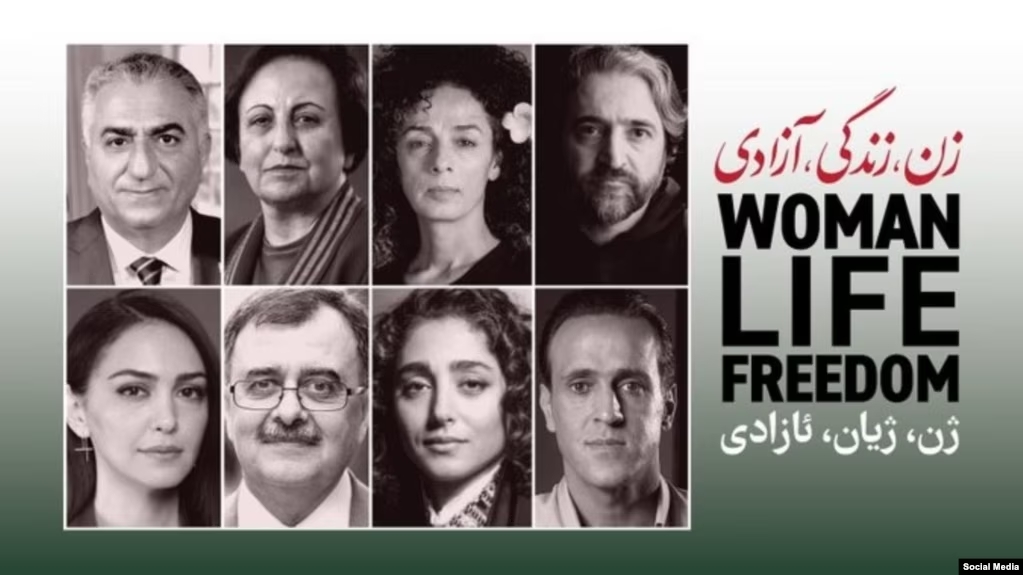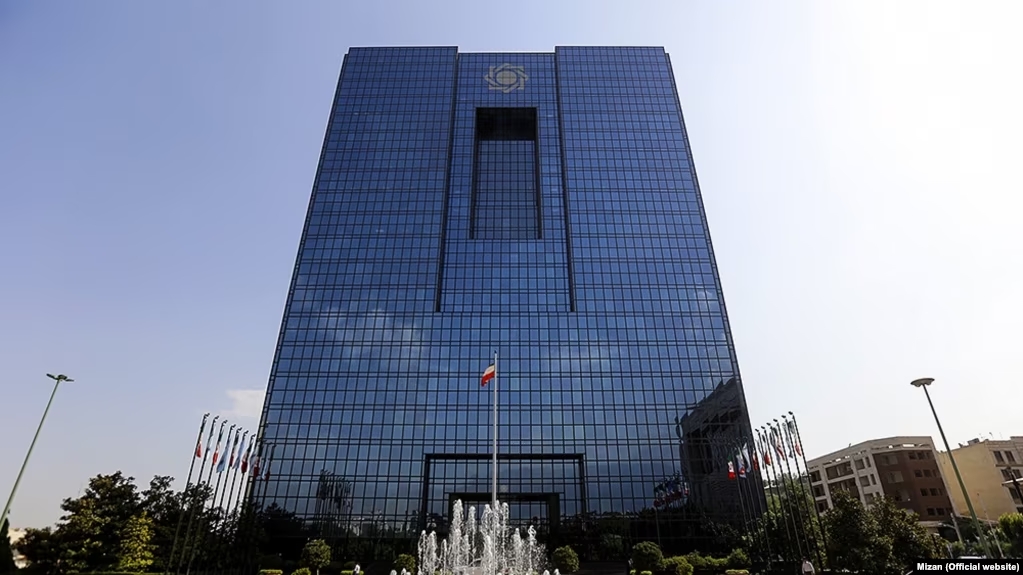
Necessity of Changing Approachesa
The editorial of Setareh Sobh argues that there has been a considerable decline in public turnout in various elections, which necessitates changing the method of governance. It also blames the Guardian Council for disqualifying competent candidates in recent elections, thus paving the way for the so-called “revolutionary” ones to be elected to the legislative and executive branches.
The Iranian revolution has entered its 44th year. The most important goal of the revolution was defending the rights of the poor and having freedom. In these years, people have experienced bitter and positive events. Currently, living standards remain abysmal as Iranians are struggling with inflation, high prices, and class disparity. Despite officials’ promises, people’s living conditions have deteriorated.
The root cause of the problem seems to lie in the way the Guardian Council functions. The revolution was the outcome of the will of the majority of the people. If so, then the question is: how come former President Hassan Rouhani once said, “Let’s not allow a power-seeking minority to push aside the majority, because that day would be the end of the revolution.”?
Iran’s national turnout rates:
- – In the first referendum for changing the type of government, 98.2 percent of qualified voters said yes to the establishment of the Iranian republic.
- – Public participation in the 1997 presidential election was 79.92 percent, when Mohammad Khatami was running for the presidency against “principlist” candidate Ali Akbar Nategh Nouri.
- – In the 12th round of the presidential election, when Hassan Rouhani was running against Ebrahim Raisi, the turnout was 73.07 percent.
- – In the 10th parliamentary election, 62 percent of qualified voters participated.
- – The percentage of participation in the 11th parliamentary election was 42.57 percent, showing a 20 percent drop compared to the previous one.
- – The turnout in the 13th presidential election was about 49 percent indicating a 24 percent drop compared to the previous presidential election.
- – The percentage of participation in the fifth City Council election was 69 percent, with the majority of votes in favor of the “reformist” candidates.
- – The turnout in the sixth City Council election was 24.66 percent with the majority of seats going to the “principlist” candidates who see themselves as “revolutionaries.” This represents an almost 45 percent drop compared to the previous election.
These statistics reveal that the institutions of the republic and elections – and consequently the Parliament and the government – have weakened in Iran. It means that the legislative and executive powers in Iran, with less than 50 percent of the votes, are run by those who see themselves as “revolutionaries.”
Nuclear Talks Through Single Channel
The editorial of Arman Melli argues that there are still hopes for reviving the nuclear deal with the West if conducted through a single channel.
Iran and the West have differences over certain issues, and in so far as no agreement is reached over these matters, there will not be any improvement in their relations. These issues include the nuclear deal, human rights, and regional issues.
In the nuclear case, Iran and the West have disagreements. Tehran has certain demands which are not considered by the United States as related to the nuclear case. Iran, however, has doubled down on resolving them along with the nuclear issues.
There is another issue which has cast its shadow over the nuclear case: the West’s claim regarding Iran’s support to Russia in its war against Ukraine. On the other hand, there is the the disagreement between Iran and the International Atomic Energy Agency (IAEA). In lieu of returning to the nuclear deal, Tehran has demanded that the IAEA should close their investigation.
In the meantime, in the eyes of the Western countries, all these files are interwoven. Because of the Russia-Ukraine war, the Europeans are not taking a clear stance toward the nuclear deal with Iran.
On the other hand, the United States seems to be more lenient than Europe on restoring the nuclear deal with Iran. In his State of the Union speech, US President Joe Biden did not point to Iran as an issue for the United States. As such, the Americans do not want to close all doors to reviving the nuclear deal.
The Europeans, on the other hand, have taken a tougher stance on the nuclear deal, given the accusations made regarding Russia using Iranian drones against Ukraine. Now, a dark shadow is cast over Iran-Europe relations, which Iran must try to overcome by adopting a comprehensive and effective diplomacy.
Under the current circumstances, Iran must start negotiating over the nuclear deal through a single channel, because despite all the problems, there are still glimmers of hope for reviving the deal.
Iran’s Trade Facing Danger
The editorial of Tejarat Online, penned by member of Iran’s Chamber of Commerce Bahram Shakoori, alleges that Japan is willing to expand trade with Iran, and the Iranian government must take measures to lift US sanctions and join the FATF to prepare the ground for the Japanese to make joint investments in Iran.
Because of sanctions, Iran’s trade with Japan has dropped to zero. It seems that Iran-Japan trade is conducted through unofficial channels. The Japanese government and the business community are interested in developing trade with Iran, as the history of bilateral trade relations goes back to about a century ago. And this has significantly increased the motivation on both sides to develop bilateral trade.
Japan and the United States have considerable joint investments, so naturally after the imposition of US sanctions on Iran, Japanese entrepreneurs curbed trade with Iran. In other words, it is in Japan’s national interest not to trade directly with Iran.
In recent days, although we have seen new sanctions imposed on Iran, Japan has not announced new sanctions, trying to maintain Iran-Japan relations at the same level as before. The Japanese are interested in making joint investments in Iran. Technologically speaking, Japan is at the same level as the United States and Europe, and we can say that Japan has whatever Iran needs in terms of industry, mining, agriculture, etc.
So, Japan can be one of Iran’s options in technology. But US sanctions are one of the main obstacles in the way of Japan’s investments in Iran.
Tehran must take steps to lift the sanctions and create good relations and engagement with the world, paving the way for using Japan’s capacities to initiate economic development in Iran. Currently, everything is prepared for Iran to join the FATF, and it only requires officials’ resolve.
In the rest of the world, economic diplomacy impacts politics, but in Iran, it is reversed and it is politics that is impacting the economy. As a result, it is the economy which is paying the price for this.
It seems that Iran must overhaul its relations with the world, or else it will face more problems every day.
Warning: Possible Earthquake in Tehran
The editorial of Aftab Yazd urges that the recent disastrous earthquakes in Turkey and Syria must be taken as warnings for the city of Tehran.
For years, experts, engineers, architects and urban designers have warned about imminent huge earthquakes in Tehran. But no one cares about these warnings because it is impossible to imagine such a frightening situation.
Moreover, it is impossible to ask people to abandon Tehran for fear that there might be an earthquake there, while it is also not possible to fortify all buildings, schools, public places, and mosques. But we can imagine the possibility of a human tragedy and the deaths of millions of people.
The least one can do is fortify certain buildings against earthquakes, as well as taking geo-technical measures to prevent a catastrophe. Furthermore, safe places can be created in each building and anti-earthquake shelters.
Given the earthquakes that recently hit Iran’s western city of Khuy, Turkey, Syria, Russia, Palestine and Taiwan, which are all close to the fault lines in Iran, the Tehran Municipality, Interior Ministry, Crisis Management Headquarters and other organizations must take immediate measures to prepare for a possible earthquake in Tehran. This is because if there is an earthquake in Tehran, it will create an unimaginable disaster. In the light of the degradation of roads and urban infrastructure in Tehran, as well the three fault lines that surround the city, there will be an unfathomable disaster if an earthquake happens.
Studying the data about the countries which struggle with this natural disaster reveals that an earthquake might take place sooner rather than later. Iranian officials must know that this is a danger that might happen any minute and must take measures for developing the necessary infrastructure to counter this natural disaster.
It is essential to talk about these dangers and the way to deal with them in the media before it is too late.

The Future of Iran’s Democracy Movement: “Solidarity Charter” to Be Drafted Soon

Eight prominent dissident figures came together at “The Future of Iran’s Democracy Movement” forum held in Georgetown University, Washington, D.C., emphasizing the solidarity of all opponents in dismantling the Iranian government.
The forum was held on the eve of the anniversary of the victory of the 1979 revolution, with the participation of Prince Reza Pahlavi, Hamed Esmaeilion, Masih Alinejad and Nazanin Bonyadi, while Shirin Ebadi, Abdollah Mohtadi, Golshifteh Farahani and Ali Karimi took part in the forum by sending video messages.
At this forum, it was also announced that a joint “solidarity charter” would be drafted and released soon based on human rights and equality for all.
Reza Pahlavi urged for the collaboration of those who are against the Iranian republic, underscoring that all differences must be set aside, and all efforts must be directed toward achieving freedom and people’s sovereignty in Iran where all citizens will be equal before the law.
Activist Masih Alinejad announced that a charter called “Solidarity and Freedom of Iran” is being drafted, with an agreement over the principles and demands of the opponents of the Iranian political system. She said that the charter, which will be probably drafted and released by the end of February, will be based on human rights and Iran’s integrity, while recognizing social diversity.
Social activist Hamed Esmaeilion urged that Iran’s new “revolution” must be based on four principles of freedom, justice seeking, social justice, and environmental justice. He stressed that those who are seeking justice expect that after the collapse of the theocratic government, truth-finding committees must be formed so that every single crime committed by the Iranian establishment is addressed.
Nobel Laureate Shirin Ebadi in her video message asserted that “the Islamic Republic has lasted because of our [opponents’] differences, and we must set aside these differences for ballot boxes [after the clerical government is gone], because now it is the time to tell the dictator that his time is over.”
iPhone 14 Banned in Iran

According to the directive of the Trade Development Organization to Iran’s Customs Office, the iPhone 14 and later models are banned from entering Iran via people coming to the country or by mail.
Following this directive, the Iranian Customs Office has ordered the removal of Apple cellphones, including the iPhone 14 and later models, from the list of authorized goods.
Some telecommunications experts have said that the new ban is because new iPhones are capable of being directly connected to the internet via satellite.
SpaceX is after launching satellite-based broadband services directly through cellphones. Of course, the cellphones must have the necessary hardware for such connections.
This year, there have been several fluctuations in Iran’s mobile market, and there have been problems with importing and registering some cellphones.
At the beginning of 2022, the iPhone 14 was imported and sold in Iran, but later it became clear that this model would not be registered by the government.
In recent years, the Iranian government has adopted a policy of banning the import of iPhones and certain cellphones from other companies, and it has gradually toughened its policy for importing cellphones.
Last year, the Iranian government announced that it is pursuing the production of domestic cellphones with an Iranian android system. At that time, Iranian media reported that the government intends to produce at least 400,000 domestic cellphones.
This is far less than the demand in the Iranian cellphone market, and some experts have stated that domestic cellphones will most probably be second-rate Chinese phones sold as Iranian products. There have been no further reports on domestically produced cellphones.
Central Bank of Iran: 77.5 Percent Growth in Government Companies’ Debts to Banking System

New statistics released by Iran’s Central Bank reveal a significant leap in government companies’ debts to the banking system and a massive increase in liquidity.
According to the Central Bank’s latest report, government companies’ debts to the banking system have increased by 77.5 percent compared to the same period last year.
Ebrahim Raisi’s government took office promising to control the growth of liquidity and the debts to the Central Bank, but as the new statistics demonstrate, although the government has stopped borrowing from the Central Bank, government companies have heavily borrowed from the banking system.
It seems that the significant increase in government companies’ debts to the banking system is because of the way the government is trying to make up for its budget deficit. The Iranian government has announced that instead of borrowing from the Central Bank, it has provided for its budget deficit through government companies. But as studies show, most of the government companies are currently making losses. As such, these companies cannot financially support the government and have to borrow from the banks.
According to the Central Bank’s statistics, there is a rise in bank borrowing from this institute so that they can offer services to government companies.
What these statistics reveal is the fact that Ebrahim Raisi’s government is indirectly borrowing from the Central Bank heavily, resulting in a significant leap in the amount of liquidity which is considered as the most important factor in inflation.
The Central Bank’s statistics indicate that the country’s liquidity has reached 5,800 trillion tomans, showing a 35 percent increase compared to the same period last year.
Moreover, last month, the inflation rate increased by 51 percent compared to the same period last year, while food inflation rose by more than 70 percent.
